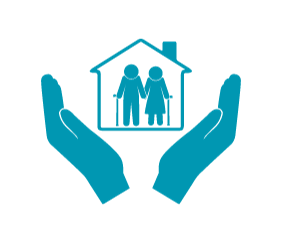In this article, we will be discussing the importance of choosing our words carefully when communicating with our elderly parents. As they age, our parents become more sensitive to the things we say, and it is crucial that we avoid unintentionally hurting or upsetting them. Join us as we explore some common phrases and topics that should be approached with caution, ensuring a loving and respectful relationship with our elderly parents.
What Should You Not Say To An Elderly Parent?
As our parents age, it is important for us to be mindful of our words and actions when interacting with them. While our intentions may be good, it is easy to unintentionally say something that can hurt or offend them. In this article, we will explore the things you should avoid saying to an elderly parent to maintain a healthy and respectful relationship.
Using Condescending language
One of the most important things to avoid when communicating with an elderly parent is using condescending language. Regardless of their age, they deserve our respect and dignity. Using words or tones that belittle or patronize them can be hurtful and disrespectful. It is essential to treat them as the capable and wise individuals they are, acknowledging their life experiences and the wisdom they have gained over the years. By using positive and respectful language, you can foster a loving and supportive relationship with your elderly parent.
Bringing up their age
While it may seem innocuous, bringing up an elderly parent’s age in certain contexts can be insensitive. Constantly reminding them of their age can make them feel self-conscious or inadequate. Instead of focusing on their age, try to appreciate them for who they are as a person. Engage in conversations that demonstrate your interest in their opinions, experiences, and achievements beyond their age. By doing so, you can create a more inclusive and positive environment for meaningful interactions with your elderly parent.
Commenting on their physical appearance
Making comments about an elderly parent’s physical appearance can be hurtful, as it reinforces societal pressures and stereotypes about aging. Negative comments about wrinkles, weight gain, or other visible signs of aging can deeply affect their self-esteem. Instead, focus on complimenting their inner qualities, such as their kindness, wisdom, or resilience. By emphasizing these qualities, you can help your elderly parent feel valued and appreciated for who they are, rather than how they look.
Questioning their memory or cognitive abilities
As people age, experiencing memory lapses or cognitive changes is not uncommon. However, questioning an elderly parent’s memory or cognitive abilities can be hurtful and demeaning. Instead of making assumptions or casting doubt on their cognitive functions, offer support and understanding. If memory loss or cognitive decline becomes a concern, it is best to consult a healthcare professional who can determine the best course of action. Remember, it is crucial to approach these situations with empathy and compassion.
Comparing them to others
When interacting with an elderly parent, it is essential to refrain from comparing them to others. Each person’s aging journey is unique, and comparing them to their peers or younger family members can lead to feelings of inadequacy or resentment. Instead, focus on their individual achievements and strengths. Celebrate the accomplishments that are unique to them and acknowledge the value they bring to your life. By highlighting their personal growth and progress, you can encourage a positive and nurturing relationship with your elderly parent.
Making insensitive remarks about their health
Sensitive topics related to health, such as chronic conditions or mobility issues, should be approached with care and sensitivity. Making insensitive remarks or criticizing their health can be detrimental to your relationship and their emotional well-being. Instead, offer support and empathy. Encourage them to seek medical advice and treatment when necessary, and assist them with any needs they may have. Remember, by demonstrating empathy and understanding, you can foster a loving and compassionate environment for your elderly parent.
Disclosing personal information without consent
Respecting an elderly parent’s privacy is crucial for maintaining trust and a sense of autonomy. Disclosing personal information about them without their consent can be a violation of their privacy and can cause them embarrassment or distress. Before discussing personal matters, ask for their permission or guidance on how much they are comfortable sharing. By prioritizing their confidentiality, you can help build a trusting and respectful relationship with your elderly parent.
Pressuring them about end-of-life decisions
When it comes to end-of-life decisions, it is essential to approach the topic with sensitivity and respect. Pressuring your elderly parent to make decisions about their will, funeral arrangements, or other final wishes can be overwhelming and distressing for them. Instead, create an open and supportive environment for discussing these matters when they feel ready. Encourage them to express their thoughts and wishes, while also reassuring them that their choices will be respected. Remember, everyone has their own timeline for addressing these sensitive topics, so it is crucial to be patient and understanding.
Commenting on their financial situation
Discussing an elderly parent’s financial situation can be a sensitive matter that requires tact and respect. Financial issues can be a source of anxiety or stress, and commenting on their financial situation without their consent can be intrusive. Instead, offer your assistance and support if they express a need for help or guidance. Be respectful of their independence and autonomy while remaining available to offer support or advice when they seek it. By respecting their financial privacy, you can promote a healthy and trusting relationship with your elderly parent.
Dismissing their feelings or emotions
Just like anyone else, elderly parents have a wide range of emotions that deserve acknowledgment and validation. Dismissing or trivializing their feelings can be deeply hurtful and isolating. Instead, actively listen to their concerns, fears, or joys. Offer empathy and understanding, and reassure them that their emotions are valid and normal. By creating a safe space for emotional expression, you can strengthen your bond with your elderly parent and help them feel heard and supported.
Talking about sensitive topics without considering their comfort
Sensitive topics such as sexuality, personal relationships, or past traumas should be approached with caution, taking into consideration your elderly parent’s comfort level. Discussing these matters without considering their emotional well-being can cause distress or embarrassment. If they express willingness to engage in such conversations, approach them with care, empathy, and respect. Understand that they may have personal boundaries or experiences that shape their comfort level, and be mindful of those boundaries. By being sensitive to their needs and preferences, you can cultivate a trusting and open line of communication with your elderly parent.
In conclusion, when interacting with an elderly parent, it is crucial to be mindful of our words and actions. By avoiding condescending language, refraining from bringing up their age, and being sensitive to their feelings and boundaries, we can foster a loving and respectful relationship. Remember, aging is a natural part of life, and our elderly parents deserve to be treated with kindness, respect, and dignity throughout their journey.


